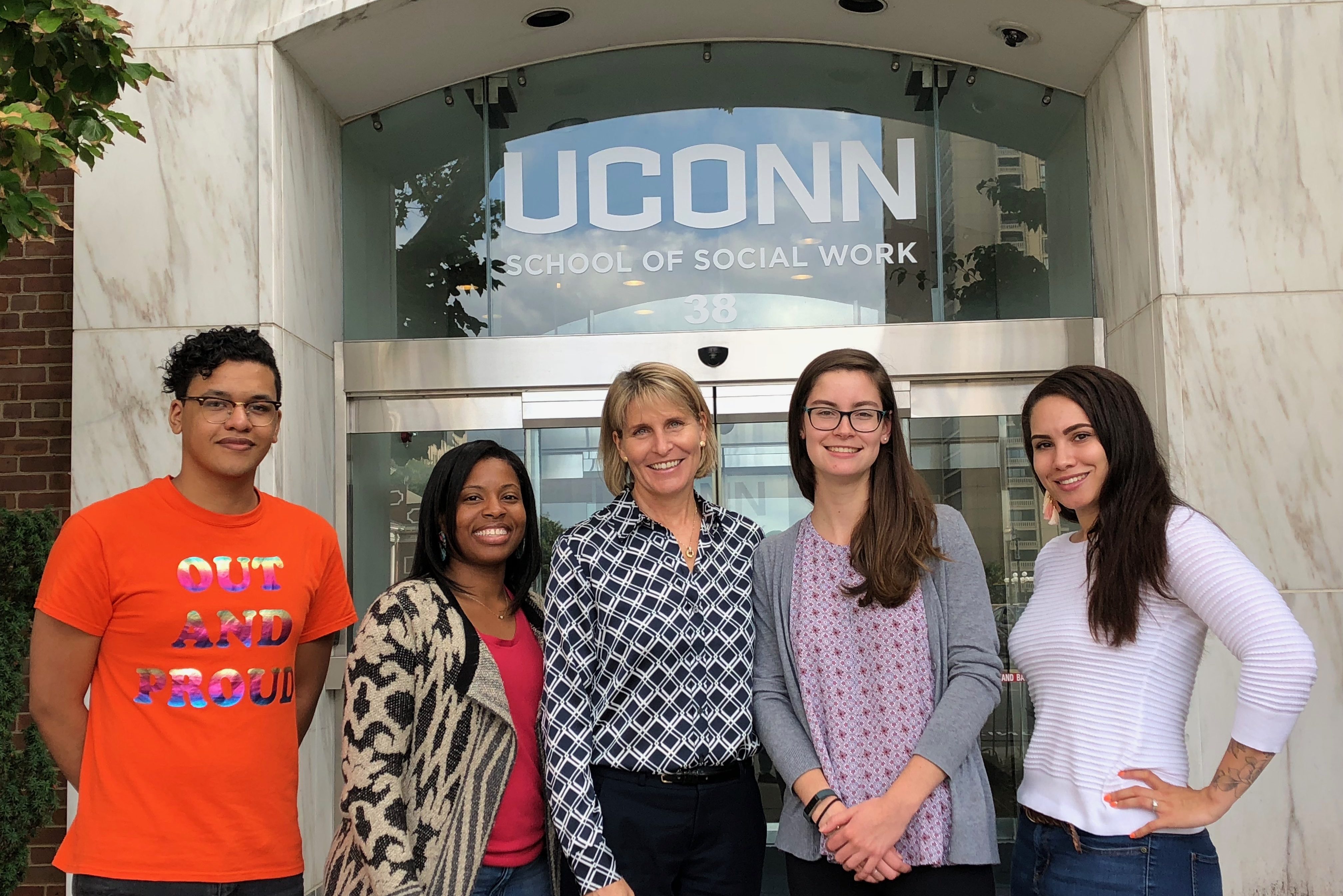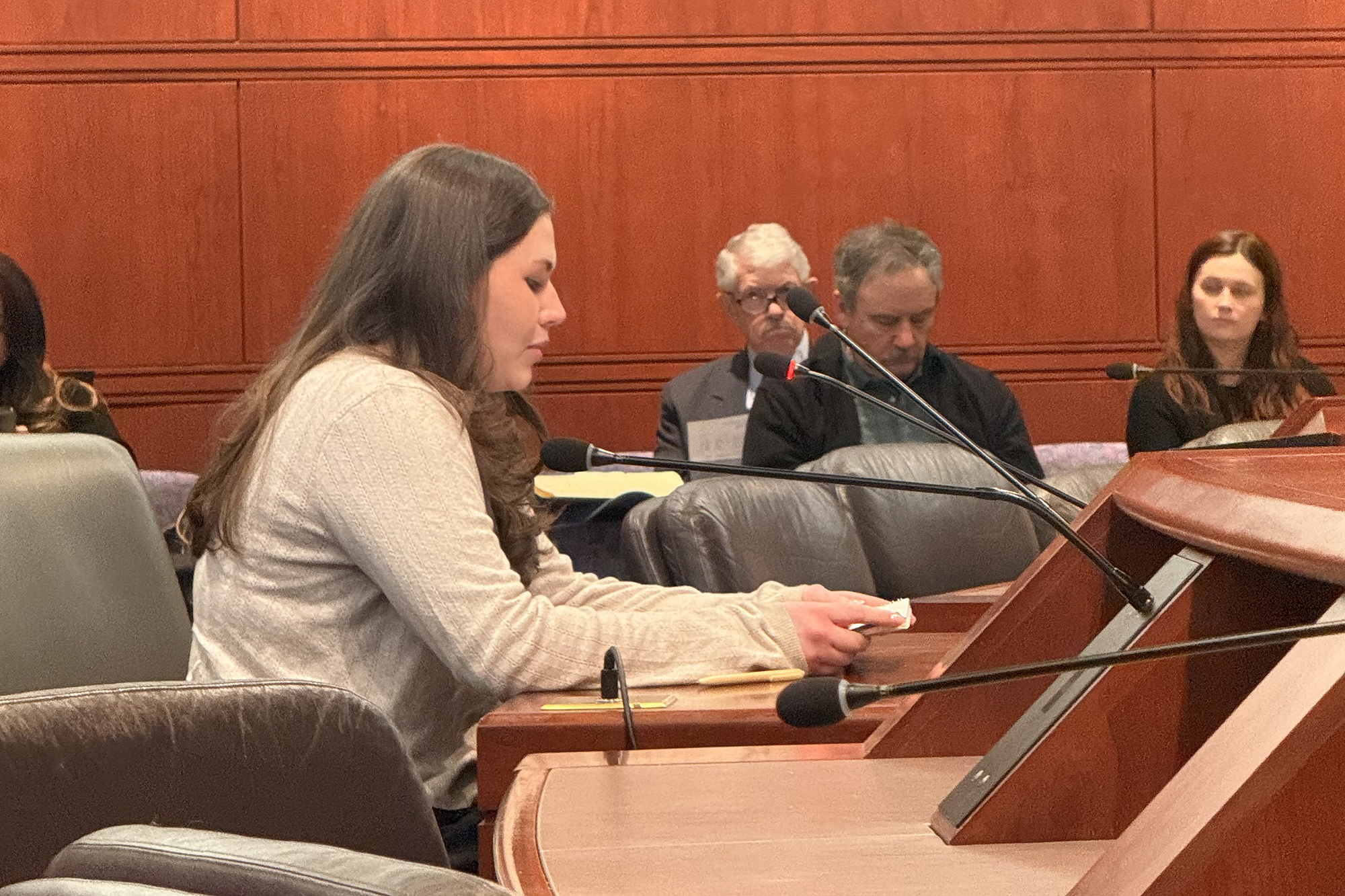Low voter turnout is a major factor in American elections. People think their votes don’t matter. They don’t like the candidates. They are turned off by negative campaigns.
Tanya Rhodes Smith ’88 (CLAS), ’00 MSW, director of the Nancy A. Humphreys Institute for Political Social Work at UConn’s School of Social Work, responds: “There is a widespread narrative that your vote won’t make a difference. But elected officials pay attention to people and communities that vote. When people stay home, so does their power. And that has consequences.”
Smith graduated from UConn’s College of Liberal Arts and Sciences in 1988 and the School of Social Work in 2000. For almost a decade, she worked in the private sector as a corporate benefits consultant, but she volunteered on the weekends with an organization that provided food, clothing, and emergency grants.
“I saw how one emergency can send a family into long-term crisis,” she says. “I wanted to understand the root causes and solutions to poverty.”
Telling people to vote isn’t enough. They really need to understand the important connection between voting and individual and community well-being. — Tanya Rhodes Smith
As a graduate student, she served as an intern at the Humphreys Institute, under founder Nancy A. Humphreys. After years of advocacy work in the Bridgeport area, Smith became the Institute’s next director in 2014, when Humphreys retired.
“I jumped at the opportunity,” she says. “I was already teaching at the school, and had stayed involved with the Institute. This gave me the opportunity to continue the work that Nancy started, which is to increase the political participation and power of social workers and the communities they serve.”
The work of the Institute aims to create a more inclusive democracy, that represents and responds to the needs of all citizens. This involves two interrelated areas: training social workers on electoral politics, and non-partisan voter engagement. Attendees of the Institute’s Campaign School, which has trained more than 1,200 social workers since 1994, learn why representation matters and how to get involved in campaigns and policymaking. The voter engagement initiative teaches students, faculty, and community members why voting matters to social work’s mission and impact.
“Telling people to vote isn’t enough,” says Smith. “They really need to understand the important connection between voting and individual and community well-being. Communities that vote create their own political power to effect change.”
The Institute has developed training that focuses on understanding the barriers to voting – including the effect of felony disenfranchisement – and emphasizes strategies for addressing these difficulties with clients in the field.
“The act of voting is actually quite complicated,” Smith notes. “Social workers and agencies can provide information about when, where, and how to vote; share non-partisan candidate and ballot guides; or provide bus tokens and ride-sharing information for people who lack transportation. And they can continually encourage people to vote. There is power in being told that your vote and your voice matter.”
Today, that message is more relevant than ever, as voter turnout has become a major issue leading up to the 2018 mid-term elections.
“People are often only thinking about the President or Congress,” Smith says. “We also want them to see that decisions made at the local level are critical to their daily lives.”



